 W
WDraft evasion in the Vietnam War was a common practice in the United States and in Australia. Significant draft avoidance was taking place even before the U.S. became heavily involved in the Vietnam War. The large cohort of Baby Boomers allowed for a steep increase in the number of exemptions and deferments, especially for college and graduate students. According to peace studies scholar David Cortright, more than half of the 27 million men eligible for the draft during the Vietnam War were deferred, exempted, or disqualified.
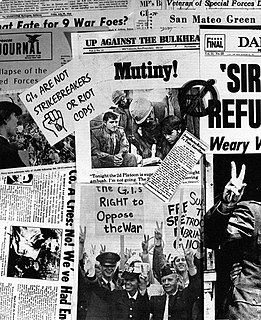 W
WThe term G.I. movement refers to resistance to military involvement in the Vietnam War from active duty soldiers in the United States military. Within the military popular forms of resistance included combat refusals, fragging, and desertion. By the end of the war at least 600 officers were killed in fraggings, over 300 refused to combat and approximately 50,000 American servicemen deserted. Along with resistance inside the U.S. military, civilians opened up various GI Coffeehouses near military bases where civilians could meet with soldiers and could discuss and cooperate in the anti-war movement.
 W
WOpposition to United States involvement in the Vietnam War began with demonstrations in 1964 against the escalating role of the United States in the Vietnam War and grew into a broad social movement over the ensuing several years. This movement informed and helped shape the vigorous and polarizing debate, primarily in the United States, during the second half of the 1960s and early 1970s on how to end the war.
 W
WAlice's Restaurant is a 1969 American comedy film directed by Arthur Penn. It is an adaptation of the 1967 folk song "Alice's Restaurant Massacree", originally written and sung by Arlo Guthrie. The film stars Guthrie as himself, with Pat Quinn as Alice Brock and James Broderick as Ray Brock. Penn, who resided in the story's setting of Stockbridge, Massachusetts, co-wrote the screenplay in 1967 with Venable Herndon after hearing the song, shortly after directing Bonnie & Clyde.
 W
WAnd babies is an iconic anti-Vietnam War poster. It is a famous example of "propaganda art" from the Vietnam War, that uses a color photograph of the My Lai Massacre taken by U.S. combat photographer Ronald L. Haeberle on March 16, 1968. It shows about a dozen dead and partly naked South Vietnamese women and babies in contorted positions stacked together on a dirt road, killed by U.S. forces. The picture is overlaid in semi-transparent blood-red lettering that asks along the top "Q. And babies?", and at the bottom answers "A. And babies." The quote is from a Mike Wallace CBS News television interview with U.S. soldier Paul Meadlo, who participated in the massacre. The lettering was sourced from The New York Times, which printed a transcript of the Meadlo interview the day after.
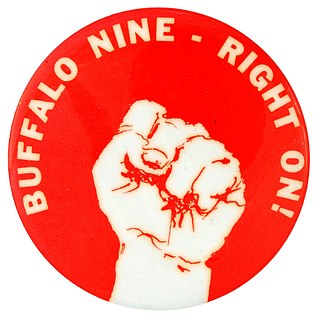 W
WThe Buffalo Nine was a group of nine Vietnam War protesters arrested together on August 19, 1968, at the Unitarian Universalist Church in Buffalo, New York.
 W
WThe Camden 28 were a group of Catholic left anti-Vietnam War activists who in 1971 planned and executed a raid on a Camden, New Jersey draft board. The raid resulted in a high-profile criminal trial of the activists that was seen by many as a referendum on the Vietnam War and as an example of jury nullification.
 W
WNoam Chomsky is an intellectual, political activist, and critic of the foreign policy of the United States and other governments. Noam Chomsky describes himself as an anarcho-syndicalist and libertarian socialist, and is considered to be a key intellectual figure within the left wing of politics of the United States.
 W
WThe court-martial of Lieutenant Susan Schnall, a U.S. Navy nurse stationed at the Oakland Naval Hospital in Oakland, California, took place in early 1969. Her political activities, which led to the military trial, may have garnered some of the most provocative news coverage during the early days of the U.S. antiwar movement against the Vietnam War. In October 1968, the San Francisco Chronicle called her the “Peace Leaflet Bomber” for raining tens of thousands of antiwar leaflets from a small airplane over several San Francisco Bay Area military installations and the deck of an aircraft carrier. The day after this “bombing” run, she marched in her officer’s uniform at the front of a large antiwar demonstration, knowing it was against military regulations. While the Navy was court-martialing her for “conduct unbecoming an officer” she was publicly telling the press “As far as I’m concerned, it’s conduct unbecoming to officers to send men to die in Vietnam.”
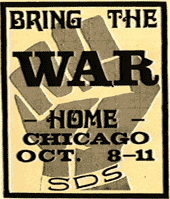 W
WThe Days of Rage demonstrations were a series of violent actions taken over a course of three days in October 1969 in Chicago, organized by the Weatherman faction of the counterculture-era group Students for a Democratic Society.
 W
WEscalation is a 1968 animated short film, directed by Disney animator Ward Kimball. It is an anti-Vietnam War cartoon mocking U.S. President, Democrat Lyndon B. Johnson.
 W
WF.T.A. is a 1972 American documentary film starring Jane Fonda and Donald Sutherland and directed by Francine Parker, which follows a 1971 anti-Vietnam War road show for GI's, the FTA Show, as it stops in Hawaii, The Philippines, Okinawa, and Japan. It includes highlights from the show, behind the scenes footage, local performers from the countries visited, and interviews and conversations with GIs "as they discuss what they saw in battle, their anger with the military bureaucracy, and their opposition to America's presence in Indochina." Called by Fonda "a spit and a prayer production" it was far from a big budget Hollywood movie, or even a well-funded documentary. While the movie "is raw," it "underscores how infectious the movement of the 60s and 70s was", and chronicles both the Tour itself as well as the soldiers who came to see it and "the local talent of organizers, labor unions and artist/activists" in the countries visited.
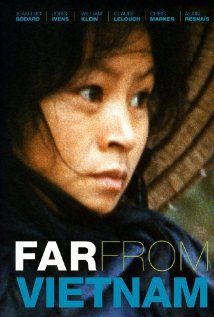 W
WFar from Vietnam is a 1967 French documentary film directed by Joris Ivens, William Klein, Claude Lelouch, Agnès Varda, Jean-Luc Godard, Chris Marker and Alain Resnais.
 W
WFlower power was a slogan used during the late 1960s and early 1970s as a symbol of passive resistance and nonviolence. It is rooted in the opposition movement to the Vietnam War. The expression was coined by the American Beat poet Allen Ginsberg in 1965 as a means to transform war protests into peaceful affirmative spectacles. Hippies embraced the symbolism by dressing in clothing with embroidered flowers and vibrant colors, wearing flowers in their hair, and distributing flowers to the public, becoming known as flower children. The term later became generalized as a modern reference to the hippie movement and the so-called counterculture of drugs, psychedelic music, psychedelic art and social permissiveness.
 W
WThe Fort Hood Three were three soldiers of the US Army – Private First Class James Johnson, Jr. Private David A. Samas, and Private Dennis Mora – who refused to be deployed to Vietnam in June 30, 1966. This was the first public refusal of orders to Vietnam, and one of the earliest acts of resistance to the war from within the U.S. military. Their refusal was widely publicized and became a cause célèbre within the growing antiwar movement. They filed a federal suit against Secretary of Defense Robert S. McNamara and Secretary of the Army Stanley Resor to prevent their shipment to Southeast Asia and were court-martialed by the Army for insubordination.
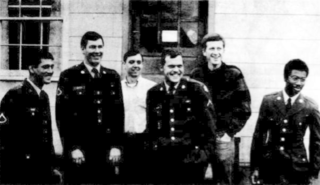 W
WThe Fort Lewis Six were six U.S. Army enlisted men at the Fort Lewis Army base in the Seattle and Tacoma, Washington area who in June 1970 refused orders to the Vietnam War and were then courts-martialed. They had all applied for conscientious objector status and been turned down by the Pentagon. The Army then ordered them to report for assignment to Vietnam, which they all refused. The Army responded by charging them with "willful disobedience" which carried a maximum penalty of five years at hard labor. The six soldiers were Private First Class Manuel Perez, a Cuban refugee; Private First Class Paul A. Forest, a British citizen from Liverpool; Specialist 4 Carl M. Dix Jr. from Baltimore; Private James B. Allen from Goldsboro, North Carolina; Private First Class Lawrence Galgano from Brooklyn, New York; and Private First Class Jeffrey C. Griffith from Vaughn, Washington. According to the local GI underground newspaper at Fort Lewis, this was the largest mass refusal of direct orders to Vietnam at the base up to that point in the war. Their refusal and subsequent treatment by the Army received national press coverage.
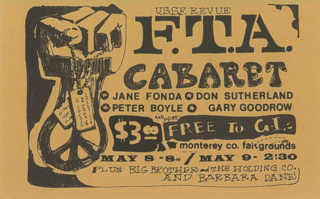 W
WThe FTA Show, a play on the common troop expression "Fuck The Army", was a 1971 anti-Vietnam War road show for GIs designed as a response to Bob Hope's patriotic and pro-war USO tour. The idea was first conceived by Howard Levy, an ex-US Army doctor who had just been released from 26 months in Fort Leavenworth military prison for refusing orders to train Green Beret medics on their way to the Vietnam War. Levy convinced actress Jane Fonda who recruited a number of actors, entertainers, musicians and others, including the actors Donald Sutherland, Peter Boyle, Garry Goodrow and Michael Alaimo, comedian and civil rights activist Dick Gregory and soul and R&B singer Swamp Dogg. Alan Myerson, of San Francisco improv comedy group The Committee, agreed to direct, while cartoonist and author Jules Feiffer and playwrights Barbara Garson and Herb Gardner wrote songs and skits for the show. Fred Gardner, the originator of the antiwar GI Coffeehouse movement, became the Tour's "stage manager and liaison to the coffeehouse staffs." At various times other actors, writers, musicians, comedians and entertainers were involved. The United States Servicemen's Fund (USSF), with Dr. Levy as one of its principle organizers, became the official sponsor of the tour. The anti-Vietnam War USSF promoted free speech within the US military, funded and supported independent GI newspapers and coffeehouses, and worked to defend the legal rights of GIs. Sponsorship was later taken over by a group called the Entertainment Industry for Peace & Justice (EIPJ).
 W
WCharles R. Garry was an American civil rights attorney who represented a number of high-profile clients in political cases during the 1960s and 1970s, including representing the Peoples Temple in Jonestown during the 1978 tragedy that occurred there, and Huey P. Newton during Capital Murder trial of 1968.
 W
WThe Greenwich Village townhouse explosion occurred on March 6, 1970, in New York, New York, United States. Members of the Weather Underground (Weathermen), an American leftist paramilitary group, were making bombs in the basement of 18 West 11th Street in the Greenwich Village neighborhood, when one of them exploded. The resulting series of three blasts completely destroyed the four-story townhouse and severely damaged those adjacent to it, including the then home of actor Dustin Hoffman and theater critic Mel Gussow. Three Weathermen—Ted Gold, Diana Oughton and Terry Robbins—were killed in the blast, while two survivors, Kathy Boudin and Cathy Wilkerson, were helped out of the wreckage and subsequently fled.
 W
WHearts and Minds is a 1974 American documentary film about the Vietnam War directed by Peter Davis. The film's title is based on a quote from President Lyndon B. Johnson: "the ultimate victory will depend on the hearts and minds of the people who actually live out there". The movie was chosen as the winner of the Oscar for Best Documentary at the 47th Academy Awards presented in 1975.
 W
WHomecoming: When the Soldiers Returned From Vietnam is a book of selected correspondence published in 1989. Its genesis was a controversial newspaper column of 20 July 1987 in which Chicago Tribune syndicated columnist Bob Greene asked whether there was any truth to the folklore that Vietnam veterans had been spat upon when they returned from the war zone. Greene believed the tale was an urban legend. The overwhelming response to his original column led to four more columns, then to a book collection of the most notable responses.
 W
WThe Human Be-In was an event held in San Francisco's Golden Gate Park Polo Fields on January 14, 1967. It was a prelude to San Francisco's Summer of Love, which made the Haight-Ashbury district a symbol of American counterculture and introduced the word "psychedelic" to suburbia.
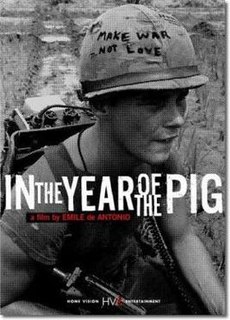 W
WIn the Year of the Pig is an American documentary film directed by Emile de Antonio about American involvement in the Vietnam War. It was released in 1968 while the U.S. was in the middle of its military engagement, and was politically controversial. One year later, the film was nominated for the Academy Award for Best Documentary Feature. In 1990, Jonathan Rosenbaum characterized the film as "the first and best of the major documentaries about Vietnam".
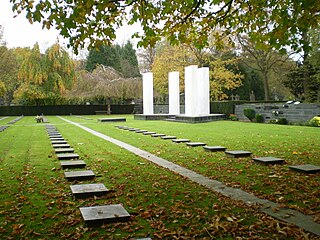 W
WThe L'Innovation fire was a fire which took place at the À L'Innovation department store on the Rue Neuve in Brussels, Belgium on 22 May 1967. 251 people were killed, 62 injured and the department store itself, the work of the architect Victor Horta, was destroyed. In the aftermath of the fire, there was speculation that it might have been started by anti-American, Maoist protestors in the context of the Cold War and opposition to United States involvement in the Vietnam War.
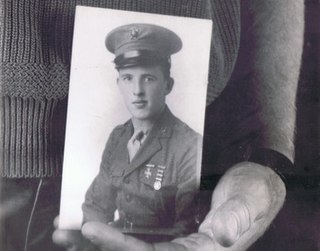 W
WA Matter of Conscience: GI Resistance During the Vietnam War is an artist book published in 1992 at the time of the Addison Gallery of American Art exhibition, “A Matter of Conscience” and “Vietnam Revisited.” It contains oral histories of Vietnam era GIs gathered and edited by Willa Seidenberg and William Short and 58 photographs by William Short. Each oral history is complemented by a portrait in which the Vietnam veteran holds an object of some significance such as a newspaper clipping, a legal document, a book, or photograph. The large black and white photographs allow readers to see the veteran while reading the brief but moving oral histories to learn why they turned against the Vietnam War. The veterans' stories and portraits were collected over a five year period and have been exhibited throughout the United States, Vietnam, Japan and Australia. A number of them were also included in the book Waging Peace in Vietnam: U.S. Soldiers and Veterans Who Opposed the War edited by Ron Carver, David Cortright, and Barbara Doherty. It was published in September 2019 by New Village Press.
 W
WShort Subject is a 16mm underground animated short film. The director was Whitney Lee Savage ; the producer and head designer was Milton Glaser. It was produced independently in 1969 and has a total running time of one minute.
 W
WThe Vietnam War, also known as the Second Indochina War, and in Vietnam as the Resistance War Against America or simply the American War, was a conflict in Vietnam, Laos, and Cambodia from 1 November 1955 to the fall of Saigon on 30 April 1975. It was the second of the Indochina Wars and was officially fought between North Vietnam and South Vietnam. North Vietnam was supported by the Soviet Union, China, and other communist allies; South Vietnam was supported by the United States, South Korea, the Philippines, Australia, Thailand, and other anti-communist allies. The war, considered a Cold War-era proxy war by some, lasted 19 years, with direct U.S. involvement ending in 1973, and included the Laotian Civil War and the Cambodian Civil War, which ended with all three countries becoming communist in 1975.
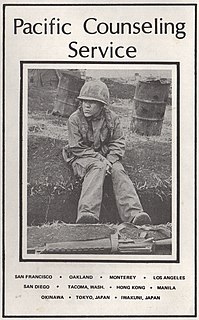 W
WThe Pacific Counseling Service (PCS) was a GI counseling service organization created by antiwar activists during the Vietnam War. PCS saw itself as trying to make the U.S. Armed Forces "adhere more closely to regulations concerning conscientious objector discharges and G.I. rights." The Armed Forces Journal, on the other hand, said PCS was involved in "antimilitary activities", including "legal help and incitement to dissident GIs." PCS evolved out of a small GI Help office started by a freshly discharged Air Force Sergeant in San Francisco, California in January 1969. The idea rapidly caught on among antiwar forces and within a year PCS had offices in Monterey, Oakland and San Diego in California, plus Tacoma, Washington. By 1971 it had spread around the Pacific with additional offices in Los Angeles, Hong Kong, Okinawa, the Philippines, as well as Tokyo and Iwakuni in Japan. Each location was established near a major U.S. military base. At its peak, PCS was counseling hundreds of disgruntled soldiers a week, helping many with legal advice, conscientious objector discharges and more. As the war wound down, ending in 1975, the offices closed with the remaining office in San Francisco printing its last underground newspaper in 1976.
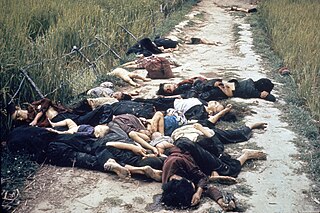 W
WThe Mỹ Lai massacre was the mass murder of unarmed South Vietnamese civilians by U.S. troops in Sơn Tịnh District, South Vietnam, on March 16, 1968 during the Vietnam War. Between 347 and 504 unarmed people were killed by U.S. Army soldiers from Company C, 1st Battalion, 20th Infantry Regiment and Company B, 4th Battalion, 3rd Infantry Regiment, 11th Brigade, 23rd (Americal) Infantry Division. Victims included men, women, children, and infants. Some of the women were gang-raped and their bodies mutilated, as were children as young as 12. Twenty-six soldiers were charged with criminal offenses, but only Lieutenant William Calley Jr., a platoon leader in C Company, was convicted. Found guilty of killing 22 villagers, he was originally given a life sentence, but served only three-and-a-half years under house arrest.
 W
WThe Russell Tribunal, also known as the International War Crimes Tribunal, Russell-Sartre Tribunal, or Stockholm Tribunal, was a private People's Tribunal organised in 1966 by Bertrand Russell, British philosopher and Nobel Prize winner, and hosted by French philosopher and writer Jean-Paul Sartre, along with Lelio Basso, Simone de Beauvoir, Vladimir Dedijer, Ralph Schoenman, Isaac Deutscher and several others. The tribunal investigated and evaluated American foreign policy and military intervention in Vietnam. This had taken place in the decade following the 1954 defeat of French forces at Diên Biên Phu and the establishment of North and South Vietnam.
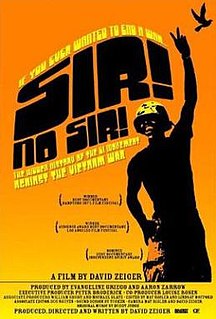 W
WSir! No Sir! is a 2005 documentary by Displaced Films about the anti-war movement within the ranks of the United States Armed Forces during the Vietnam War. The film was produced, directed, and written by David Zeiger. The film had a theatrical run in 80 cities throughout the U.S. and Canada in 2006, and was broadcast worldwide on: Sundance Channel, Discovery Channel, BBC, ARTE France, ABC Australia, SBC Spain, ZDF Germany, YLE Finland, RT, and several others.
 W
WThe Spitting Image: Myth, Memory and the Legacy of Vietnam is a 1998 book by Vietnam veteran and sociology professor Jerry Lembcke. The book is an analysis of the widely believed narrative that American soldiers were spat upon and insulted by anti-war protesters upon returning home from the Vietnam War. The book examines the origin of the earliest stories; the popularization of the "spat-upon image" through Hollywood films and other media, and the role of print news media in perpetuating the now iconic image through which the history of the war and anti-war movement has come to be represented.
 W
WThe Sterling Hall bombing that occurred on the University of Wisconsin–Madison campus on August 24, 1970, was committed by four men as a protest against the university's research connections with the U.S. military during the Vietnam War. It resulted in the death of a university physics researcher and injuries to three others.
 W
WThe Stop Our Ship (SOS) movement, a component of the overall civilian and GI movements against the Vietnam War, was directed towards and developed on board U.S. Navy ships, particularly aircraft carriers heading to Southeast Asia. It was concentrated on and around major U.S. Naval stations and ships on the West Coast from mid-1970 to the end of the Vietnam War in 1975, and at its height involved tens of thousands of antiwar civilians, military personnel and veterans. It was sparked by the tactical shift of U.S. combat operations in Southeast Asia from the ground to the air. As the ground war stalemated and Army grunts increasingly refused to fight or resisted the war in various other ways, the U.S. “turned increasingly to air bombardment”. By 1972 there were twice as many Seventh Fleet aircraft carriers in the Gulf of Tonkin as previously and the antiwar movement, which was at its height in the U.S. and worldwide, became a significant factor in the Navy. While no ships were actually prevented from returning to war, the campaigns, combined with the broad antiwar and rebellious sentiment of the times, stirred up substantial difficulties for the Navy, including active duty sailors refusing to sail with their ships, circulating petitions and antiwar propaganda on board, disobeying orders, and committing sabotage, as well as persistent civilian antiwar activity in support of dissident sailors. Several ship combat missions were postponed or altered and one ship was delayed by a combination of a civilian blockade and crewmen jumping overboard.
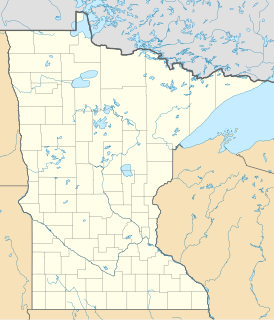 W
WThe United States Post Office building in Minneapolis, Minnesota, also known as the "Old" Federal Building, is a structure listed on the National Register of Historic Places. It was built from 1912 through 1915 and served as the main post office for Minneapolis until the present-day Minneapolis Post Office building was completed in 1936. Since then, it has housed a variety of federal offices.
 W
WVietnam Veterans Against the War (VVAW) is an American tax-exempt non-profit organization and corporation founded in 1967 to oppose the United States policy and participation in the Vietnam War. VVAW says it is a national veterans' organization that campaigns for peace, justice, and the rights of all United States military veterans. It publishes a twice-yearly newsletter, The Veteran; this was earlier published more frequently as 1st Casualty (1971–1972) and then as Winter Soldier (1973–1975).
 W
WVietnam War resisters in Canada were American draft evaders and military deserters who found refuge from prosecution in Canada. American war resisters who sought refuge in Canada during the Vietnam War would ignite controversy among those seeking to immigrate to Canada. According to scholar Valerie Knowles, draft evaders were typically college-educated and middle class who could no longer defer induction into the Selective Service System. Deserters were usually lower-income and working class who had been inducted into the armed services right after high school or had later volunteered, hoping to obtain a skill and broaden their limited horizons.
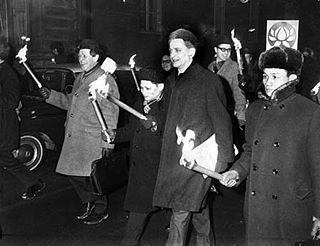 W
WVietnam War resisters in Sweden were Americans who fled to Sweden to avoid service in the Vietnam War between 1967 and 1973. Among the roughly 1,000 American exiles were around 800 military deserters. Unlike other nations like Canada that discretely harbored Vietnam War resisters, the Swedish government granted war resisters asylum status and the public openly welcomed them. This unique acceptance and Swedish politicians' open protests against American involvement in the Vietnam War caused a rift in relations between the United States and Sweden.
 W
WWaging Peace in Vietnam: U.S. Soldiers and Veterans Who Opposed the War is a non-fiction book edited by Ron Carver, David Cortright, and Barbara Doherty. It was published in September 2019 by New Village Press and is distributed by New York University Press.